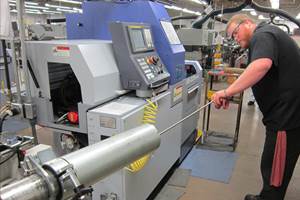7 Ways Supervisors Mismanage Employee Injuries
Supervisors play a key role in the management of injuries, return to work accommodations and reasonable accommodations under the Americans with Disabilities Act (ADA).
Supervisors play a key role in the management of injuries, return to work accommodations and reasonable accommodations under the Americans with Disabilities Act (ADA). While supervisors may be well trained in the functional aspects of maintaining a safe workplace, reporting injuries, investigating injuries and return to work programs, many fall short in their interaction with injured employees, and their well-meaning actions can be costly to employers and even lead to litigation. Here are seven unnecessary blunders often made by supervisors:
Not reporting an injury at an employee’s request. When hard working employees are injured on the job they may ask the supervisor not to report the injury, indicating that the injury is not bad, and they can work through the pain. Delays in reporting can compromise an employee’s rights as well as mushroom into costly claims. Supervisors should treat all injuries consistently, not attempt to evaluate the severity of the injury, and help employees understand the importance of receiving appropriate treatment early.
Related Content
6 Tips for Training on a Swiss-Type Lathe
There are nuances to training a person to effectively operate a Swiss-type lathe. A shop I visited a while back offers some suggestions.
Read MoreTraining Is More Than a Skills Upgrade
Training is more than a skills upgrade. Training is a process that creates a virtuous cycle for your performers, culture and shop. Why do we train? Why do we need to train?
Read MoreThe Value of Aligning Efforts to Promote Manufacturing Careers
Successfully building the next generation of manufacturers requires a team effort between employers, educators and parents. Each of these three groups has a tremendous impact on young people’s career decisions. Without the support of all three, we are unlikely to bridge the skilled labor shortage that threatens the future growth of our industry.
Read MoreEmerging Leader's Dedication to Education
Instilling confidence throughout a shop floor can do wonders for company morale while increasing productivity.
Read MoreRead Next
Do You Have Single Points of Failure?
Plans need to be in place before a catastrophic event occurs.
Read MoreSeeing Automated Workpiece Measurement in Real Time
User-friendly inspection software for CNC machining centers was shown at IMTS 2024 monitoring measurements between and after machining while performing SPC based on recorded measurement values.
Read More5 Aspects of PMTS I Appreciate
The three-day edition of the 2025 Precision Machining Technology Show kicks off at the start of April. I’ll be there, and here are some reasons why.
Read More












.jpg;maxWidth=300;quality=90)









